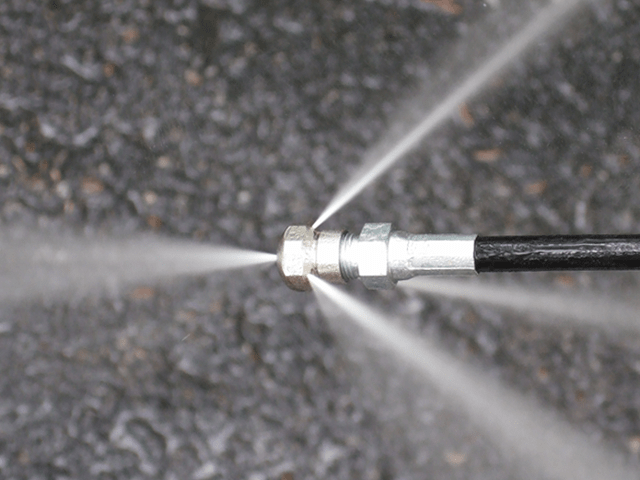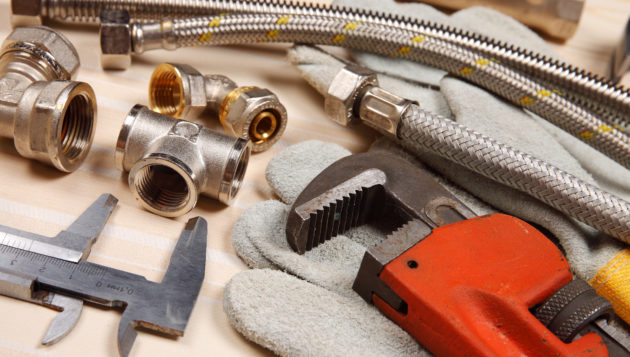We have stumbled upon the article pertaining to How to Prevent Frozen Pipes down the page on the internet and think it made sense to discuss it with you on this site.

All homeowners who stay in warm environments must do their best to winterize their pipelines. It is something you have to do throughout autumn prior to deep winter months really begins. Failing to do so can spell disaster like icy, broken, or ruptured pipelines. Here are some useful winterizing hacks to maintain your plumbing system shielded even if the weather condition exterior is frightful.
Switch on the Faucets
When the temperature level decreases as well as it appears as if the icy temperature level will certainly last, it will certainly assist to turn on your water both inside your home and also outdoors. This will keep the water moving through your plumbing systems. You'll end up losing gallons of water this way.
Open Cupboard Doors Hiding Plumbing
When it's cool outside, it would certainly be handy to open closet doors that are camouflaging your pipes. Doing this tiny trick can keep your pipelines warm as well as limit the possibly dangerous end results of freezing temperatures.
Take Time to Cover Exposed Pipes
One simple and great hack to warm up frigid pipelines is to wrap them with cozy towels. You can also make use of pre-soaked towels in hot water, simply do not fail to remember to put on protective handwear covers to safeguard your hands from the warm.
Try a Hair Dryer or Heat Gun
When your pipelines are almost freezing, your reliable hair clothes dryer or warmth gun is a godsend. If the warm towels do not aid dislodge any type of resolving ice in your pipelines, bowling hot air straight into them may help. Nevertheless, do not use various other things that produce straight flames like a strike torch. This can lead to a larger calamity that you can not control. You might wind up destructive your pipelines while attempting to thaw the ice. And in the long run, you may even end up burning your home. So beware!
When Pipes are Frozen, close Off Water
Switch off the major water shutoff right away if you notice that your pipelines are completely frozen or virtually nearing that phase. You will normally discover this in your cellar or utility room near the heating unit or the front wall closest to the street. Turn it off as soon as possible to prevent further damage.
With more water, more ice will load up, which will at some point lead to burst pipes. If you are uncertain concerning the state of your pipes this winter months, it is best to call a professional plumber for an examination.
All property owners who live in warm climates should do their best to winterize their pipelines. Failing to do so can spell calamity like icy, cracked, or ruptured pipes. If the warm towels do not help displace any kind of clearing up ice in your pipelines, bowling warm air directly into them might help. Turn off the major water valve instantly if you observe that your pipes are totally frozen or nearly nearing that phase. With more water, more ice will stack up, which will at some point lead to break pipes.
PREVENT YOUR PIPES FROM FREEZING THIS WINTER
A Leading Cause of Property Damage
When the weather is taking a deep nose dive into the cold dreary days, the risk of your pipes freezing and potentially bursting skyrockets. Unfortunately, during these cold dreary months, burst pipes are the most common denominator for property damage. The pipes that are most at the risk are those that are in areas where it is most cold in your home. For instance, pipes located in interior places such as basements, attics, and your garage. Unfortunately, that doesn’t mean that the pipes running through your cabinets or exterior walls can’t freeze. Good news, however, is that you can do things to help prevent pipes from freezing.
How to Prevent Pipes From Freezing
Once the temperature starts to drop during the winter, you should be taking the proper measures needed to ensure that your pipes stay warm and that there is circulation of water through them. Some steps that experts may recommend could go against your better judgement when it comes to saving water and heat. However, it would go without saying that when expenses are compared, damaged pipes could put a bigger dent in your wallet than a water bill.
What Can I Do?
Keep your garage door closed. This is very important, especially if you have water supply lines running through your garage. Open your kitchen and bathroom cabinets to allow warm air to circulate through them. Allow air circulation throughout your home. Keeping the interior doors open will once again allow the warm air to circulate inside your home. Ensure your thermostat is running the same temperature throughout the night and day. If you plan to be away from home during the cold months, set your temperature no lower than 55° F. This should provide enough heat to keep the pipes warm and prevent any remaining water inside the pipes from freezing. For more of a long-term solution, add insulation to attics, basement, and other crawl spaces around your home. By allowing your faucet to drip, it will alleviate pressure in the system. This is important because the pressure that is created between the blockage and the faucet can potentially cause the pipes to burst. Allowing the faucet to drip will prevent the pressure from building up, therefore keeping the pipes from bursting. Seal any cracks, openings, and crawl spaces around your home to prevent cold air from coming inside. This keeps your pipes-not to mention your home-warmer and less susceptible to issues caused by freezing temperatures. For the pipes in your home that are easily accessible, applying electrical tape to them might prevent them from freezing over. This is a quick fix, as you can apply the tape directly to the pipe. There are two options for heating tapes. One turns on and off by itself when it senses heat is needed. The other type of heating tape needs to be applied when heat is needed and removed when not necessary. If you have exposed pipes in your home, you can check this website to take a look at a few options that would be available at a shop near you.

I ran across that blog posting about How to stop pipes from freezing during the winter while browsing the internet. Are you aware of somebody else who is sincerely interested in How to Prevent Frozen Pipes? Take a moment to promote it. I recognize the value of reading our article about Prevent Freezing and Bursting Pipes.
Trusted plumbing emergency service awaits.